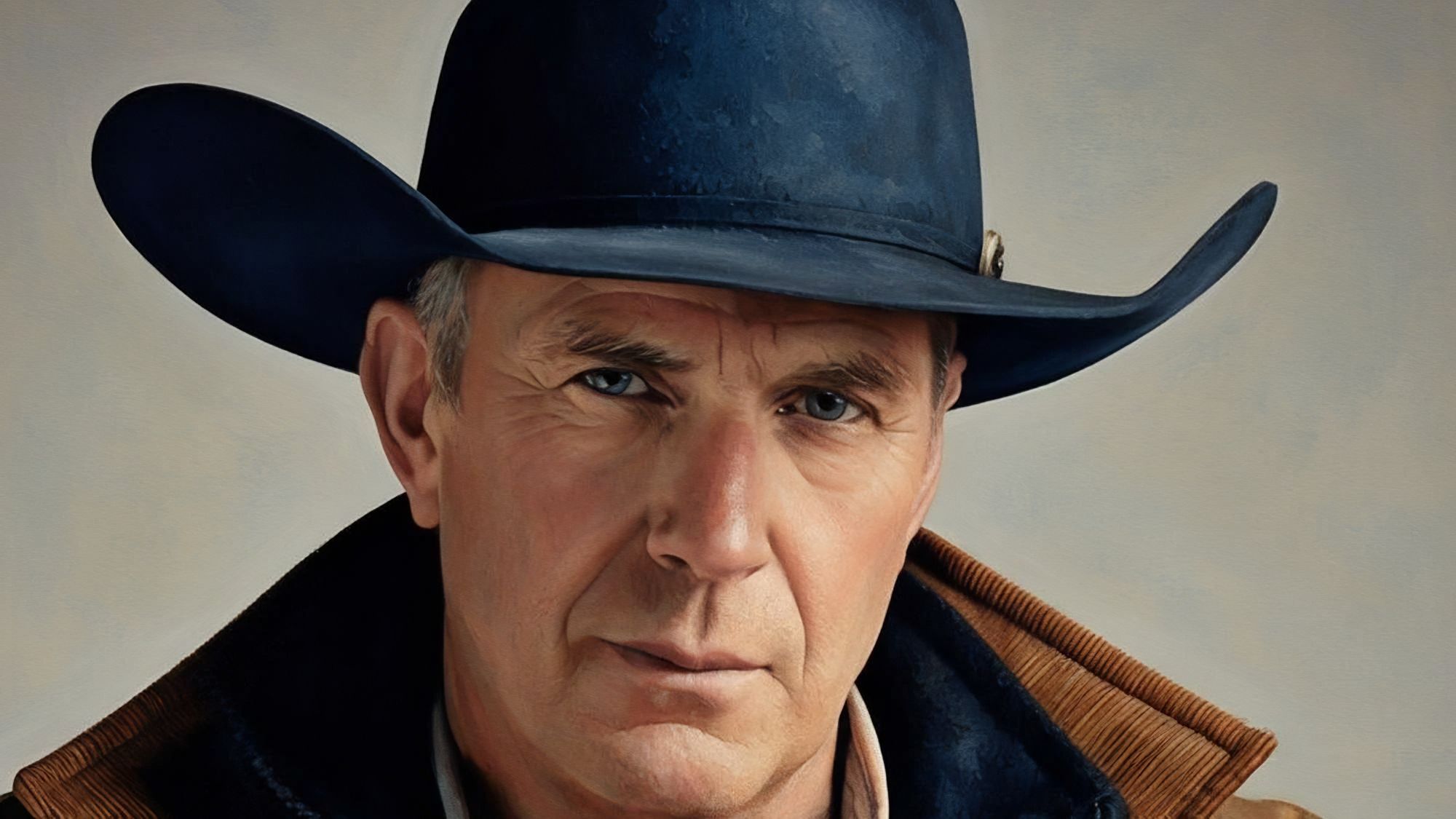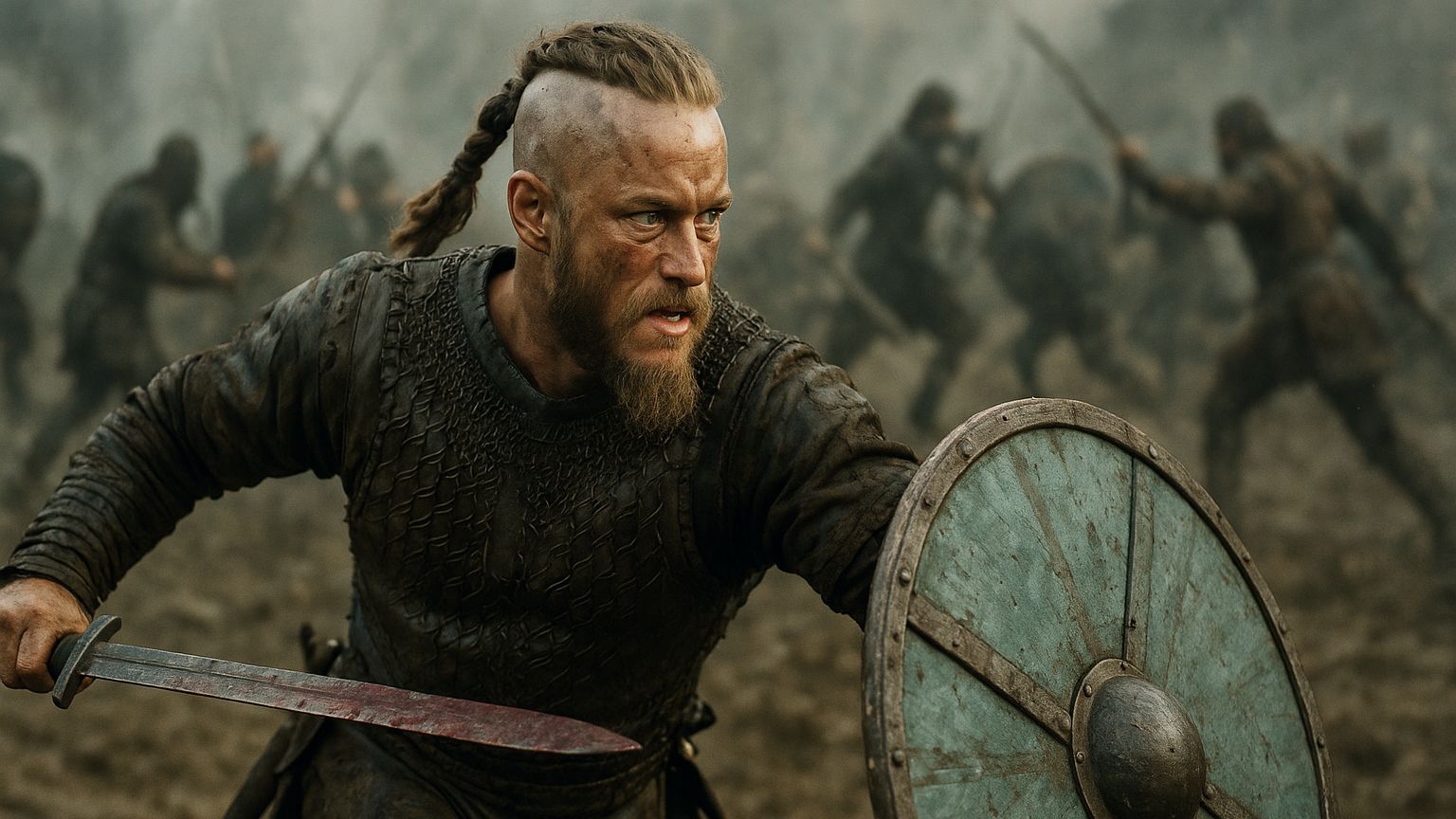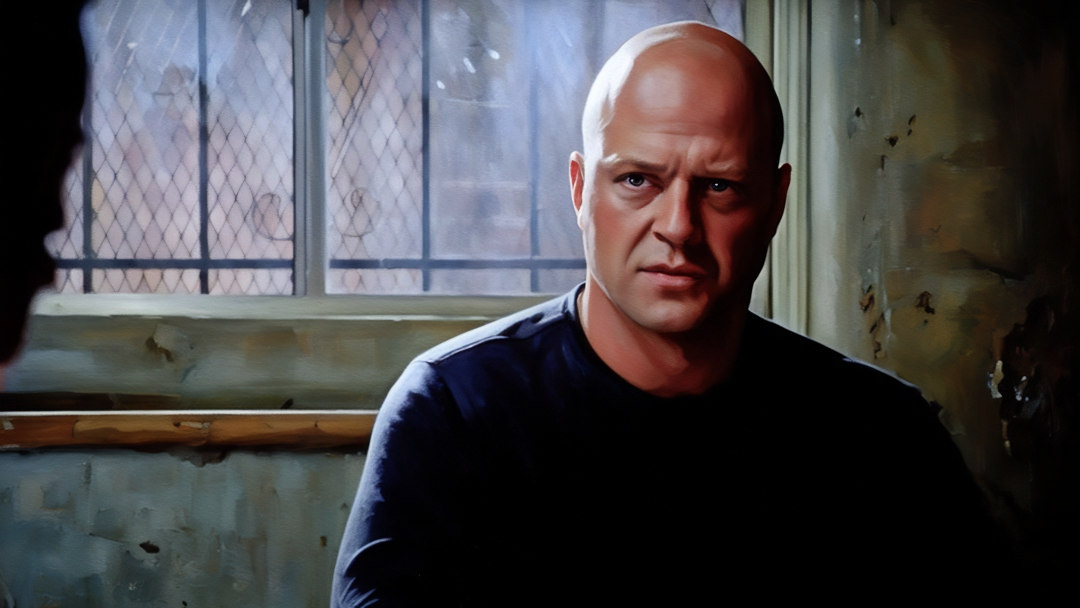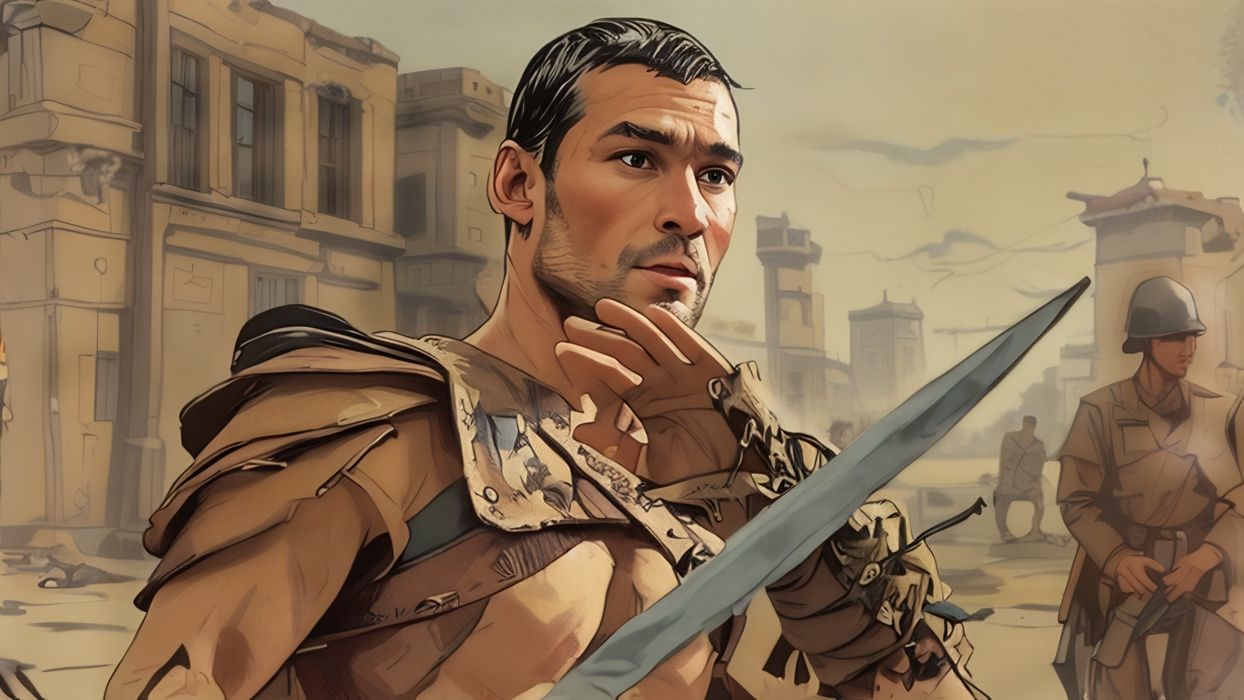At the center of Yellowstone’s sweeping drama and frontier politics stands John Dutton—a man of conviction, steel nerves, and fiercely guarded principles. Played with rugged gravitas by Kevin Costner, Dutton is the soul of the Yellowstone ranch, a patriarch navigating a treacherous world of corporate threats, family fractures, and moral compromise. He’s not a hero in the traditional sense, but his commitment to protecting his land and bloodline is nothing short of epic. Across the series, John delivers moments that are as emotionally potent as they are powerfully cinematic. These are the ten most memorable John Dutton scenes—each revealing the layers of a character who’s as flawed as he is formidable.
#10: Threatening the Developer on the Cliff (Season 1, Episode 1)
From the very first episode, John Dutton makes it clear: mess with his land, and you’ll pay the price. After a developer’s construction crew encroaches on the Yellowstone property, Dutton confronts the man personally. With the Montana mountains behind him and no backup in sight, John walks right up to the developer at the edge of a cliff and delivers a threat that is both poetic and terrifying: “You build anywhere near here again, I’ll put your building in the river.”
It’s classic Dutton—cool, composed, and impossible to intimidate. The power of the scene lies not in what he says, but how he says it. There’s no yelling, no posturing—just quiet certainty. It sets the tone for the entire series: John Dutton doesn’t play politics—he plays for keeps.
This moment is memorable because it’s our first real look at how John defends what’s his. He’s not a man who sues. He’s a man who shows up. And with just a few words and a long stare, he shows us why crossing him is always a mistake.
#9: Teaching Tate to Ride (Season 2, Episode 2)
Beneath the hardened rancher exterior, John Dutton has a soft spot—and it glows brightest when he’s with his grandson, Tate. In one of the show’s sweetest and most heartfelt scenes, John teaches Tate to ride a horse for the first time. He’s patient, encouraging, and clearly delighted to pass on a piece of the Dutton legacy to the next generation.
The moment is filled with warmth and pride. As Tate wobbles in the saddle, John steadies him, both literally and figuratively. He tells him, “You just let the horse know you’re the boss, but never forget—he’s doing the hard part.” It’s advice for riding, but also for life.
This scene is memorable not because it’s dramatic, but because it’s tender. In a world filled with betrayal and violence, this quiet moment of connection reminds us of what John is really fighting for. His love for family may not always be gentle, but it’s deep—and here, it shines.
#8: Holding His Dying Son, Lee (Season 1, Episode 1)
The first episode of Yellowstone doesn’t just introduce us to John Dutton’s strength—it shows us his heartbreak. After a dispute with the Broken Rock Reservation leads to a shootout, John’s eldest son, Lee, is fatally wounded. John arrives just in time to cradle him as he dies.
The moment is raw and devastating. John doesn’t scream or cry. Instead, he whispers reassurances, fighting to keep his voice steady as he watches his firstborn slip away. The grief is in his silence, his stillness. For a man who’s spent his life protecting his family and land, this is the one battle he can’t win.
It’s a defining scene because it reveals the vulnerability beneath the stoic façade. This loss changes everything—from John’s relationships with his remaining children to how he approaches every decision going forward. In that moment, John isn’t a powerful landowner. He’s just a father losing his child. And it’s unforgettable.
#7: Running for Governor to Protect the Ranch (Season 4, Episode 10)
John Dutton has always preferred the dirt of the land to the politics of the statehouse. So, when he announces his decision to run for Governor of Montana, it shocks both allies and enemies alike. But John isn’t interested in power—he’s interested in protection. The land, his family, his legacy—they’ve been under attack from every direction. Running for office isn’t about ambition. It’s about defense.
What makes this moment so memorable is the stoic resignation in John’s eyes. He doesn’t want the job. He doesn’t crave the spotlight. But he knows that if he doesn’t step up, someone with fewer scruples and less loyalty to the land will take the reins. His speech, laced with contempt for the current system, lands like a thunderclap: “I don’t care if they hate me, as long as they leave my land alone.”
It’s a powerful evolution of his character—from cowboy to kingmaker, and then to the king himself. And it’s a reminder that sometimes, in order to preserve tradition, you have to walk straight into the fire of change.
#6: Confronting Jamie About His Betrayal (Season 3, Episode 10)
The relationship between John and his adopted son Jamie has always been volatile, but it reaches a devastating crescendo when John discovers that Jamie has betrayed the family—aligning himself with a rival to secure his own future. John’s fury is volcanic, but what makes the scene chilling is his control. There are no theatrics—just a cold, cutting monologue that hits like a knife to the soul. “You’ve always been a disappointment,” John tells him, his voice low and venomous. “I raised a snake.” Jamie’s face crumbles under the weight of that truth, and the dynamic between them shifts forever. John doesn’t just disown him—he erases him.
This scene is unforgettable because it exposes the deepest wound in John’s heart: not betrayal from an outsider, but from someone he loved as his own. The emotional brutality is matched only by the precision with which John delivers it. It’s a moment where a father becomes a stranger, and the Dutton family fracture becomes irreversible.
#5: Telling Beth She Can’t Have Children (Season 3, Episode 5)
In one of Yellowstone’s most quietly shattering scenes, John has a tender conversation with Beth after she breaks down in the barn. It’s the first time she confesses her infertility to her father—something she has carried with guilt and pain for years. And rather than recoil or judge, John simply listens.
He doesn’t try to fix it. He doesn’t offer false comfort. Instead, he wraps his arms around her and tells her what she needs to hear: “You’re enough, Beth. You’ve always been enough.” In that moment, all of Beth’s thorns fall away. She is once again a daughter seeking shelter in her father’s strength.
This moment is unforgettable because it’s one of the rare times John drops his armor and simply loves with no conditions. It shows his capacity for tenderness, especially with the child who most mirrors his fire. There’s no fight in this scene—just truth, vulnerability, and the unbreakable bond between a father and his daughter.
#4: Reading the Letter to Kayce About the Ranch (Season 2, Episode 10)
After a season of bloodshed and loss, John hands his son Kayce a letter. Inside are the keys to the future: instructions, dreams, expectations. But most importantly, it’s an expression of trust. Kayce reads it slowly, eyes brimming with tears, as John tells him: “This is yours now. If you want it.”
John watches from a distance—not looming, but hopeful. He knows Kayce may reject it. He knows the ranch might die with him. But in giving Kayce that choice, he shows the greatest act of faith a father can offer: letting go.
It’s a simple scene, but deeply affecting. No yelling. No long speeches. Just paper, pen, and a lifetime of legacy passed from one hand to another. It’s the Dutton way—power not inherited through decree, but through belief.
#3: The Breakfast Table Monologue About Legacy (Season 2, Episode 6)
In one of the most iconic and quotable moments in Yellowstone, John Dutton sits at the breakfast table, surrounded by his adult children. Tensions are high, futures are uncertain, and his family is fractured. But John takes a quiet moment to deliver a speech that cuts through the noise like a branding iron to the heart.
He talks about the land—not as property, but as sacred. He recalls the generations who bled for it, who built their lives on it, who buried their dead beneath it. “This ranch is the only thing I’ll ever leave you,” he says. “You better protect it. You better love it.” The weight of his words hangs in the air, not just for his children, but for the audience.
This scene is powerful because it distills John Dutton’s entire identity into one truth: everything he does, every brutal decision, every compromise, every sacrifice—is for legacy. For something that will outlast him. It’s a monologue not of vanity, but of stewardship. And it’s one of the clearest windows into the soul of a man who has given everything to keep something sacred alive.
#2: Choosing Not to Kill Jamie (Season 4, Episode 10)
After years of betrayal, manipulation, and emotional damage, John Dutton is handed an opportunity to end it all—Jamie kneeling before him, broken and vulnerable. Jamie has betrayed the family. He’s aided their enemies. He’s cost lives. And yet, John chooses not to kill him.
It’s not forgiveness, and it’s certainly not reconciliation. It’s something colder, more haunting: indifference. John tells Jamie, “You’re not a part of this family anymore.” And that, for Jamie, is worse than death.
What makes this moment so memorable is the restraint it takes. In a world where problems are often solved with bullets, John chooses silence and exile. He doesn’t need to kill Jamie to destroy him—he simply walks away. And in doing so, he reminds us that his greatest weapon has never been his fists—it’s the unrelenting force of his judgment.
#1: Sitting Alone on the Ranch at Sunset (Season 1, Episode 9)
The most powerful John Dutton moment isn’t a confrontation or a speech—it’s a quiet scene near the end of Season 1, where he sits on horseback, overlooking the Yellowstone ranch as the sun dips below the horizon. No dialogue. No music. Just a man, his land, and the silence between them.
He’s just buried his son. He’s facing threats from every corner—developers, Native tribes, his own government. And yet, for this one moment, he sits in stillness, staring at the land he’s devoted his entire life to protecting.
It’s a wordless declaration of purpose. Everything he is, everything he’s done—right or wrong—has been for this. And though he knows he won’t live forever, this ranch will. It must.
This moment is the soul of Yellowstone. Its John Dutton stripped down to his essence—not a warrior, not a father, not a politician. Just a man with dirt under his nails, staring down the end of his legacy and daring the world to take it.
John Dutton isn’t just the anchor of Yellowstone—he’s its heart, its storm, and its conscience. These ten unforgettable moments reveal the full spectrum of who he is: a land steward, a flawed father, a strategic force, and a deeply loyal man trying to outlive his mortality through what he leaves behind. Whether facing enemies or embracing his children, every word and action from John carries weight. Because in the world of Yellowstone, legacy isn’t written in blood—it’s carved into the land. And no one carves deeper than John Dutton.




